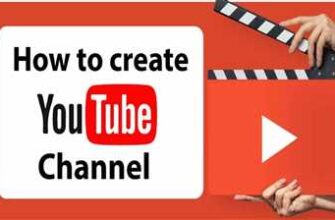
Writing blog articles is a skill which everyone can learn, but it takes time and practice to master. Many bloggers think that all they need to do is to sit down and start typing, but there are actually a few steps they should follow in order to write better posts. In this article, we will explore the top tips for writing engaging and high-quality blog articles that will not only help you generate more traffic but also attract and retain a loyal audience.
Before you start writing, it’s important to do thorough research on your topic. This includes gathering information from reliable sources, such as books, research papers, and authoritative websites. The more you know about the subject you’re going to write about, the better your blog article will be. Additionally, doing proper research will allow you to provide accurate and valuable information to your readers.
One of the key tips for writing blog articles is to understand your audience. Think about who you are writing for and what they would like to read. By creating content that resonates with your target audience, you’ll be able to build a loyal following and turn your blog into a valuable resource for them. Take the time to understand your readers’ needs and interests, and tailor your content to address their pain points and provide solutions.
A good blog article should have a clear structure and be easy to read. Use subheadings, bulleted lists, and short paragraphs to break up your content and make it more scannable. By using these formatting techniques, you’ll make it easier for your readers to navigate through your article and find the information they are looking for. Additionally, make sure to include relevant keywords within your content to improve its search engine optimization (SEO) and attract organic traffic to your blog.
If you’re willing to go the extra mile and provide even more value to your readers, consider inviting guest bloggers to contribute to your blog. Guest posts can bring fresh perspectives and insights, and they also help you reach a wider audience. By featuring guest bloggers, you’ll be able to provide your readers with a variety of voices and expertise within your niche, making your blog a go-to destination for valuable content.
Now that you know the essential tips for writing blog articles, it’s time to put them into practice. Start by brainstorming topics that are relevant to your audience and that you feel passionate about. Then, create an outline for each article, including the main points you want to cover and the supporting information you’ll need. This will help you stay organized and stay on track while writing your blog post.
Remember, writing great blog articles takes time and effort. But with the right tools and a solid plan, you’ll be able to create high-quality content that engages your audience and drives traffic to your blog. Don’t be afraid to experiment and try new things, and most importantly, don’t be too hard on yourself. Rome wasn’t built in a day, and your blog will take time to grow and flourish. Stick with it, and you’ll soon see the results you’ve been working so hard to achieve.
How to Write a Blog Post Better than ChatGPT
When it comes to writing blog posts, top bloggers know that their content needs to stand out. With ChatGPT generating articles within minutes, bloggers need to up their game and provide valuable and engaging content that surpasses what an AI can produce. If you are willing to put in the time and effort, here are 7 tips to help you write a blog post better than ChatGPT:
- Research your niche: Before you start writing, do thorough research on your niche. Understand the topics that are already popular and think of ways you can provide unique insights or a fresh perspective.
- Know your audience: To create content that resonates with your audience, it’s important to have a deep understanding of their interests, needs, and pain points. Conduct surveys or interact with your readers to gather insights that will help tailor your content to their preferences.
- Generate a list of ideas: Before you begin writing, brainstorm ideas for your blog post. Create a list of subtopics or key points that you want to cover in-depth. This will help you stay organized and ensure you cover all necessary aspects.
- Stick to a keyword: Identify a primary keyword that you want your blog post to rank for. This will help you optimize your content for search engines and attract organic traffic. Incorporate the keyword naturally throughout your post without overstuffing it.
- Follow a step-by-step structure: Having a clear structure for your blog post makes it easier for readers to follow and digest the information. Use bulleted lists, subheadings, and paragraphs to break down your content and make it more reader-friendly.
- Use guest bloggers: Sometimes, it’s beneficial to have guest bloggers contribute to your blog. They can provide fresh perspectives and expertise in areas you might not be well-versed in. Collaborating with others will bring diversity to your blog and keep your audience engaged.
- Utilize writing tools: There are various online writing tools available that can help you improve your writing skills and enhance your blog post. From grammar checkers to plagiarism detectors, these tools can ensure your content is error-free and polished.
Remember, while ChatGPT can generate articles quickly, it lacks the human touch and deep understanding that comes with experience and knowledge. By following these tips, you’ll be able to create blog posts that surpass AI-generated content, providing value and engaging your audience on a whole new level.
Before you start do keyword research
In order to write better blog articles, you’ll need to do keyword research before you start writing. Many bloggers are willing to skip this step, thinking that they already know their niche and audience well enough. However, doing keyword research can help you generate ideas, stick to a topic, and find the right keywords to target within your content.
Keyword research is a crucial step that every blogger should follow. It helps you identify the top keywords and phrases that your target audience is searching for. By knowing these keywords, you can optimize your blog posts for better visibility and reach a wider audience.
There are many tools and sources available to help with keyword research. Some of the top ones include Google Keyword Planner, SEMrush, Moz Keyword Explorer, and Ahrefs. These tools provide valuable data on search volume, competition, and related keywords, which can guide your content creation strategy.
When conducting keyword research, make sure to think about the limitations of each tool and the following tips:
| – | Focus on long-tail keywords: Instead of targeting general keywords with high competition, try to find more specific and relevant long-tail keywords that have lower competition. |
| – | Consider user intent: Think about the intent behind the keywords your audience is using. Are they looking for information, products, or solutions? Tailor your content accordingly. |
| – | Don’t keyword stuff: While optimizing your content for keywords is important, avoid overusing them. Write naturally and provide valuable information to your readers. |
| – | Look for trending topics: Keep an eye on current trends and keywords related to your niche. Stay updated and provide fresh content that resonates with your audience. |
| – | Use guest blogging within your niche: Collaborating with other bloggers and writing guest posts can help you expand your reach and attract new audiences. |
| – | Chat with your audience: Engage in conversations with your audience through comments, social media, or email. Understand their needs and gather insights for your future content. |
By following these tips and conducting thorough keyword research, you’ll be able to write blog articles that are more valuable, targeted, and beneficial for your readers and your blog’s success!
Step 2: Write your blog post
Now that you have done your research and have a clear understanding of your niche, audience, and keyword list, it’s time to start writing your blog post. Here are some tips and tools that will help you generate quality content:
1. Stick to your niche: Think about what your audience is looking for and make sure your blog post is focused on that. Stay within the boundaries of your niche to provide valuable and relevant information.
2. Gather information from reliable sources: Use credible sources and references to support any claims or statements you make in your blog post. This will help build trust with your readers and establish you as a reliable source of information.
3. Follow the bulleted list: Break down your content into smaller chunks using bullet points. This makes it easier for readers to scan through your article and absorb the key points.
4. Use catchy headlines: Grab your audience’s attention with a compelling headline that clearly communicates what your blog post is about.
5. Write for your audience: Keep your readers in mind while writing. Use a conversational tone and language that resonates with your target audience.
6. Open up for guest posts: Consider allowing other bloggers within your niche to contribute guest articles to your blog. This not only provides fresh content but also expands your network and brings in new readers.
7. Use the right blogging tools: There are many tools available that can help you write better blog posts. Use tools like Grammarly for proofreading and editing, and keyword research tools to optimize your content for search engines.
Remember, writing blog posts is an ongoing process. Don’t be afraid to experiment and try new things. The more you write, the better you’ll get at it. Stick to a consistent schedule and engage with your audience through comments and social media. Stay committed, and you’ll see your blog grow over time!
7 Top Tips for Writing Blog Articles
Writing blog articles can be a daunting task for many. But with the right research, tools, and a step-by-step approach, you’ll be able to generate quality content that resonates with your niche audience. To help you on your blogging journey, here are 7 top tips that will take your blog posts to the next level:
- Do your research: Before you start writing, take the time to research the topic you’ll be writing about. Look for reputable sources and gather as much information as possible. This will not only help you create a well-informed post but also give you a deeper understanding of the subject matter.
- Stick to a specific niche: It’s important to choose a specific niche for your blog and stick to it. Writing about a wide range of topics can make it difficult for readers to identify what your blog is really about. Find your unique angle and focus on delivering valuable content within your chosen niche.
- Think of your audience: Always keep your target audience in mind when writing. Consider what they want to read, what information they’re looking for, and how you can provide value to them. This will help you tailor your content to their needs and make it more engaging for them.
- Use keyword research tools: Keyword research is crucial for optimizing your blog posts for search engines. Utilize tools like Google Keyword Planner or SEMrush to find relevant keywords that have high search volumes but low competition. Incorporate these keywords naturally throughout your post to improve its visibility.
- Structure your content: Use headings, subheadings, and bulleted or numbered lists to break up your content and make it easier to read. This not only improves the readability of your post but also helps search engines understand the organization of your content.
- Be open to guest bloggers: Inviting guest bloggers to contribute to your blog can bring fresh perspectives and new ideas. It also allows you to tap into their existing audience and extend the reach of your blog. Look for bloggers who write within your niche and are willing to share their expertise.
- Interact with your readers: Encourage your readers to leave comments and engage with them through replies. Respond to their queries, acknowledge their feedback, and create a sense of community. This not only builds a loyal readership but also gives you ideas for future blog posts.
By following these 7 top tips, you’ll be able to write blog articles that are not only informative and engaging but also attract a wider audience. Remember, practice makes perfect, so keep writing and experimenting with different techniques to find your own unique blogging style. Happy blogging!
Sources
When it comes to blogging, there are many sources that can help you generate top-notch content for your audience. Here are 7 sources you can’t stick to just one:
- Keyword research tools: Use tools like ChatGPT or open-source keyword research tools to find popular topics within your niche.
- Blogging communities: Join blogging communities and chat with other bloggers to get help and tips on writing better blog articles.
- Guest posts: Reach out to other bloggers in your niche and see if they are willing to accept guest posts from you.
- Top blog articles: Analyze and learn from the top blog articles in your industry to see what makes them successful.
- Online forums: Participate in online forums related to your niche and engage with the community to gather ideas and insights.
- Research articles: Do your own research and read scientific or academic articles related to your niche for a more in-depth understanding.
- Twitter chats: Follow relevant Twitter chats where bloggers discuss their experiences and share valuable insights.
By following these sources, you’ll be able to find a wide range of topics, ideas, and tips to write engaging blog posts that resonate with your audience.








